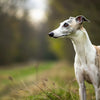Understanding Shiba Inu Personality Traits: The Fiery Spirit of Japan's Beloved Breed
- Houndsy
Table of Contents
- Introduction
- The Origins of the Shiba Inu: A Glimpse into History
- Personality Traits That Define the Shiba Inu
- Living with a Shiba Inu: Tips for Success
- Conclusion: Embracing the Shiba Inu Spirit
- FAQs
Introduction
Imagine a dog that embodies a perfect blend of independence, loyalty, and a dash of mischief—a creature that's as likely to curl up next to you as it is to assert its dominance over the living room. This is the Shiba Inu, a breed that has captivated dog lovers around the globe and is characterized by its unique personality traits. Did you know that the Shiba Inu is one of Japan's oldest and smallest native breeds, with a history that dates back to at least the 3rd century BC? Their spirited nature and charming appearance have made them a favorite among pet owners, but their personality can also present challenges.
In this blog post, we will explore the fascinating personality traits of the Shiba Inu, examining their social behavior, intelligence, independence, and the quirks that make them both delightful companions and, at times, formidable challenges. By the end, you'll gain a deeper understanding of what it means to welcome a Shiba Inu into your home and how to create a fulfilling life for both you and your furry friend.
What to Expect
We will discuss:
- The historical context of the Shiba Inu and how it has shaped their personality traits.
- Key characteristics that define the Shiba Inu personality, including their loyalty, independence, and stubbornness.
- Social behaviors and interactions with humans and other pets.
- Training tips and strategies to effectively manage their spirited nature.
- Insights into their health, grooming needs, and how to ensure a happy, healthy life.
As we dive into the captivating world of Shiba Inu personality traits, we invite you to reflect on your own experiences with pets and consider how these traits might influence your relationship with a Shiba Inu. Let’s embark on this journey together!
The Origins of the Shiba Inu: A Glimpse into History
The Shiba Inu is deeply rooted in Japanese culture, originally bred for hunting small game in the mountainous regions of Japan. Their name translates to "brushwood dog," likely referencing the terrain in which they were used for hunting. This historical context is essential in understanding their personality traits—Shiba Inus were valued for their alertness, independence, and agility, traits that remain prevalent today.
During World War II, the breed faced near extinction due to bombings and a distemper outbreak. However, dedicated breeders worked tirelessly to revive the breed, ensuring that the Shiba Inu would not only survive but thrive. Today, they are celebrated not only for their striking appearance but also for their spirited personalities.
Key Takeaway
Understanding the Shiba Inu's historical background helps us appreciate their complex personality traits. Their independent nature, developed from centuries of hunting, contributes to their unique behavior as both loyal companions and strong-willed individuals.
Personality Traits That Define the Shiba Inu
1. Independence: The Free Spirit
One of the most defining characteristics of the Shiba Inu is its independence. These dogs are known for possessing a "cat-like" demeanor, often preferring to do things on their own terms. This independence can sometimes come across as aloofness, as they may not always seek constant companionship from their owners.
Implications for Owners:
- Training Challenges: Their independent nature means that Shiba Inus may not respond to commands as readily as more obedient breeds. They often require patient, consistent training strategies that engage their minds.
- Space Needs: Shibas are content to entertain themselves and may require less direct attention than other breeds, making them suitable for individuals or families with busy lifestyles.
2. Loyalty: A Devoted Companion
Despite their independent streak, Shiba Inus are fiercely loyal to their families. They create strong bonds with their human companions and can be quite protective of their loved ones. This loyalty is often coupled with a playful spirit, making them entertaining and affectionate companions.
Implications for Owners:
- Socialization: Early socialization is crucial to ensure that your Shiba Inu grows up to be well-adjusted and comfortable around strangers and other pets. Exposing them to different environments and experiences helps reinforce their loyalty to you while teaching them appropriate behavior in social settings.
3. Stubbornness: The Strong-Willed Nature
Shiba Inus are renowned for their stubbornness, which can be both endearing and frustrating. Their strong-willed personality means they often have their own ideas about how things should be done, leading to a unique dynamic in the owner-dog relationship.
Implications for Owners:
- Training Techniques: Because of their stubbornness, Shiba Inus respond best to positive reinforcement training methods. Using treats, praise, and engaging activities can make training sessions more enjoyable for both you and your dog.
- Consistency is Key: Consistent rules and boundaries are essential for ensuring a well-behaved Shiba Inu. They thrive in environments where expectations are clear.
4. Intelligence: The Clever Canine
Shiba Inus are highly intelligent dogs, capable of learning commands and tricks quickly. However, their independence may lead them to choose whether or not to follow commands, depending on their mood. This intelligence is often accompanied by a curious nature, making them eager to explore their surroundings.
Implications for Owners:
- Mental Stimulation: Providing mental stimulation through puzzles, interactive toys, and training exercises is crucial to keep your Shiba Inu engaged and prevent boredom-related behaviors.
- Challenging Activities: Shibas excel in dog sports and activities that allow them to showcase their agility and intelligence, offering an outlet for their energy and cleverness.
5. Prey Drive: The Hunter Within
As a breed originally developed for hunting, Shiba Inus possess a strong prey drive. They are naturally inclined to chase small animals, which can lead to challenges in managing their behavior around other pets, particularly smaller animals.
Implications for Owners:
- Leash Training: To ensure safety, Shiba Inus should always be leashed when outside of a secure area. Training them to come when called is essential, although it may take time and patience due to their independent nature.
- Socialization with Caution: Introducing Shiba Inus to other pets should be done cautiously and under controlled circumstances to prevent aggressive encounters.
6. Grooming Needs: The Clean Canine
Shiba Inus are known for their clean habits and minimal odor. They have a dense double coat that requires regular grooming to manage shedding, particularly during seasonal changes.
Implications for Owners:
- Regular Grooming Routine: A consistent grooming routine, including brushing and bathing, helps keep your Shiba Inu's coat healthy and reduces shedding in your home. Establishing a positive association with grooming from a young age will make this process easier.
7. Distinctive Vocalizations: The Shiba Scream
One of the most amusing traits of the Shiba Inu is their unique vocalization known as the "Shiba scream." This high-pitched sound can be heard when they are excited, frustrated, or seeking attention, often leaving their owners both amused and bewildered.
Implications for Owners:
- Understanding Communication: Learning to interpret your Shiba Inu's vocalizations helps strengthen your bond and allows you to better address their needs and emotions.
Living with a Shiba Inu: Tips for Success
Creating a Positive Environment
To foster a harmonious relationship with your Shiba Inu, it's essential to create an environment that meets their unique needs:
- Routine and Structure: Establishing a consistent daily routine helps your Shiba Inu feel secure and understand what to expect.
- Mental and Physical Exercise: Regular exercise and mentally stimulating activities are crucial for keeping your Shiba Inu happy and healthy. Aim for at least 30 minutes of vigorous activity each day.
- Positive Reinforcement Training: Use positive reinforcement techniques to encourage desired behaviors. Reward your Shiba Inu with treats, praise, and playtime for following commands and exhibiting good manners.
Socialization Strategies
Proper socialization is vital for ensuring your Shiba Inu grows into a well-rounded adult. Here are some effective strategies:
- Puppy Classes: Enroll in puppy kindergarten or obedience classes to expose your Shiba Inu to new experiences and reinforce training.
- Structured Playdates: Arrange playdates with other dogs to help your Shiba Inu learn appropriate social behaviors and develop confidence.
- Varied Environments: Take your Shiba Inu to different parks, pet-friendly stores, and community events to help them become comfortable in diverse situations.
Conclusion: Embracing the Shiba Inu Spirit
The Shiba Inu is a breed full of personality, charm, and complexity. Their independence, loyalty, and spirited nature make them unique companions that require a dedicated and experienced owner. By understanding their personality traits and implementing effective training and socialization strategies, we can create a fulfilling and rewarding relationship with our Shiba Inus.
As we explore the world of these remarkable dogs, we invite you to reflect on your own experiences and consider welcoming a Shiba Inu into your home. With the right preparation and commitment, you can enjoy a lifetime of adventure and companionship with this fiery breed.
FAQs
Are Shiba Inus suitable for first-time dog owners?
Shiba Inus are generally not recommended for first-time dog owners due to their strong-willed and independent nature. They require an experienced handler who can provide consistent training and socialization.
How much exercise do Shiba Inus need?
Shiba Inus typically require at least 30 minutes of vigorous exercise each day. Engaging in activities like walking, running, or participating in dog sports can help meet their exercise needs.
Do Shiba Inus get along with other pets?
Shiba Inus have a strong prey drive and can be aggressive towards other animals, particularly smaller pets. Early socialization is essential, but caution should be exercised when introducing them to other pets.
How often should I groom my Shiba Inu?
Shiba Inus have a thick double coat that requires regular grooming. It is recommended to brush them at least once a week, with more frequent grooming during shedding seasons.
What training methods work best for Shiba Inus?
Positive reinforcement training methods work best with Shiba Inus. Using treats, praise, and engaging activities can help encourage desired behaviors and make training sessions enjoyable.












